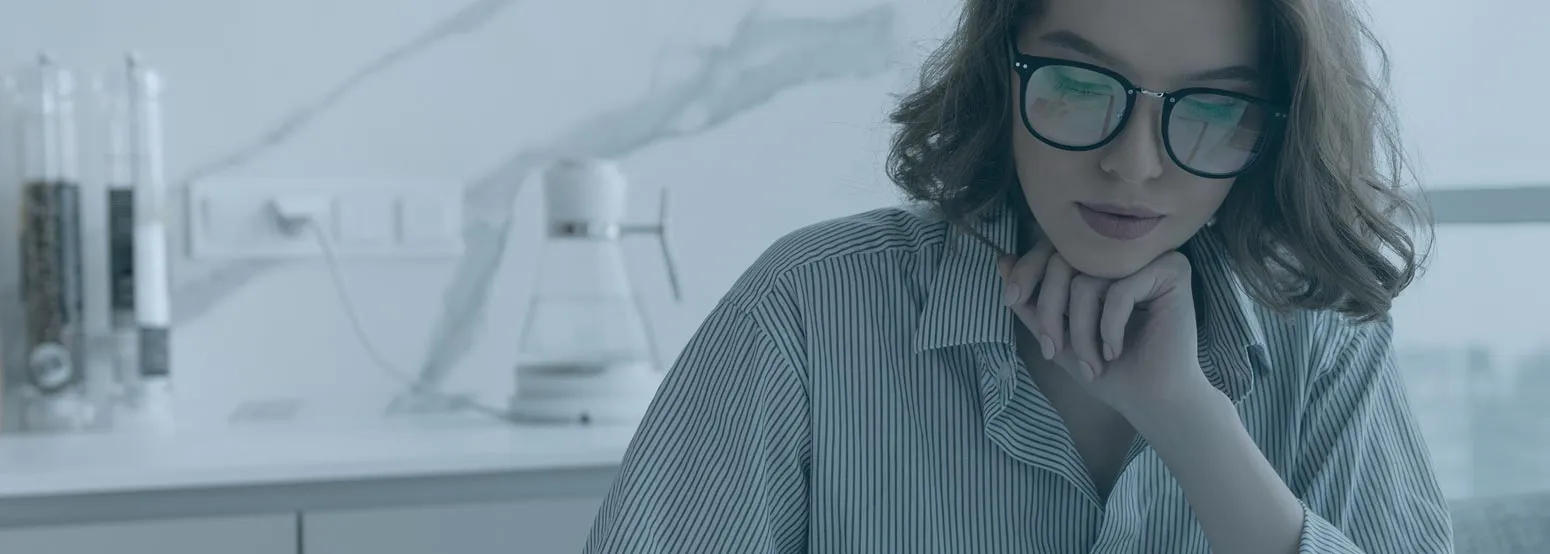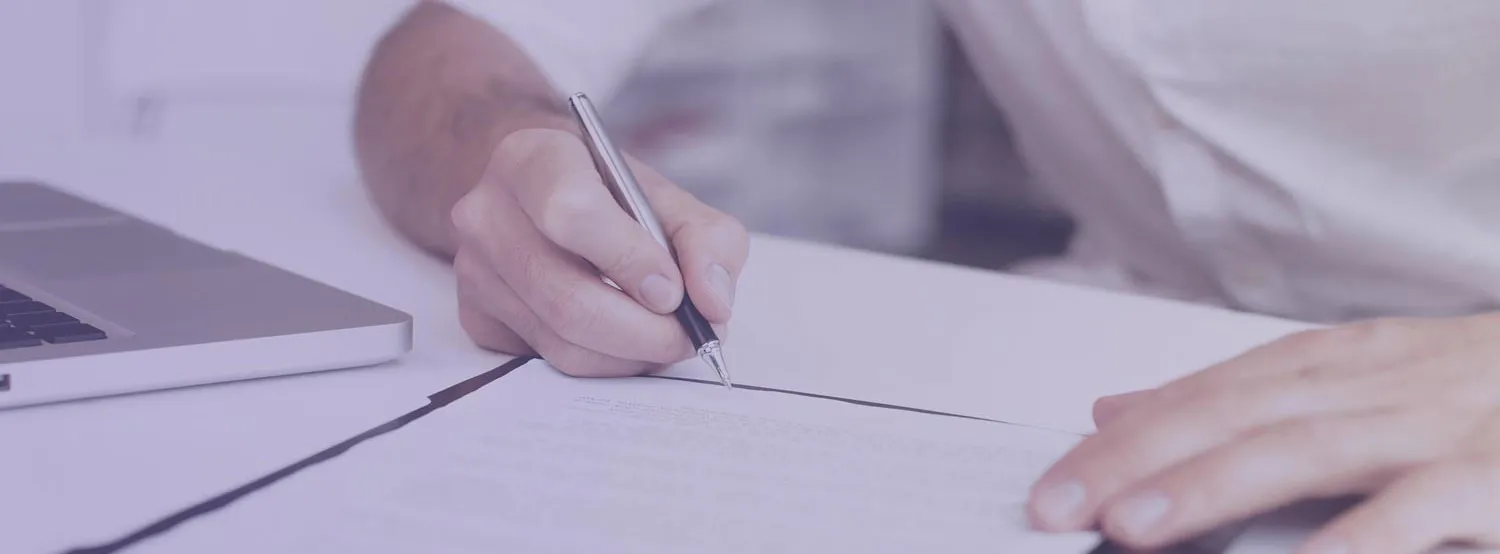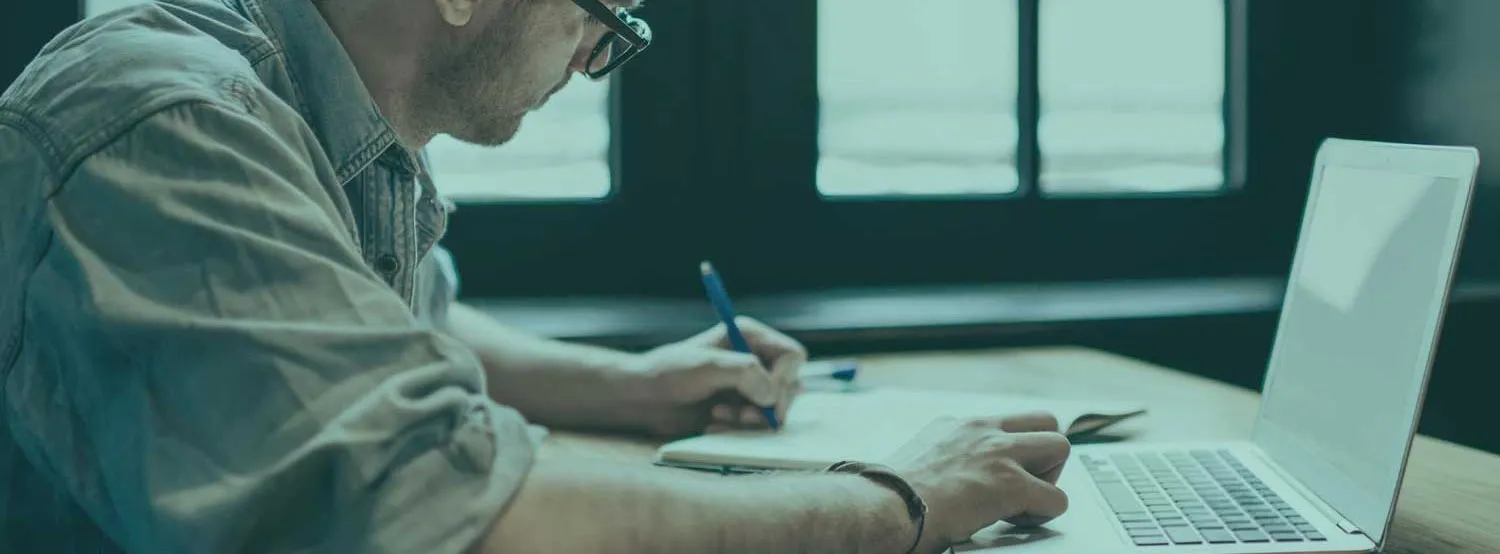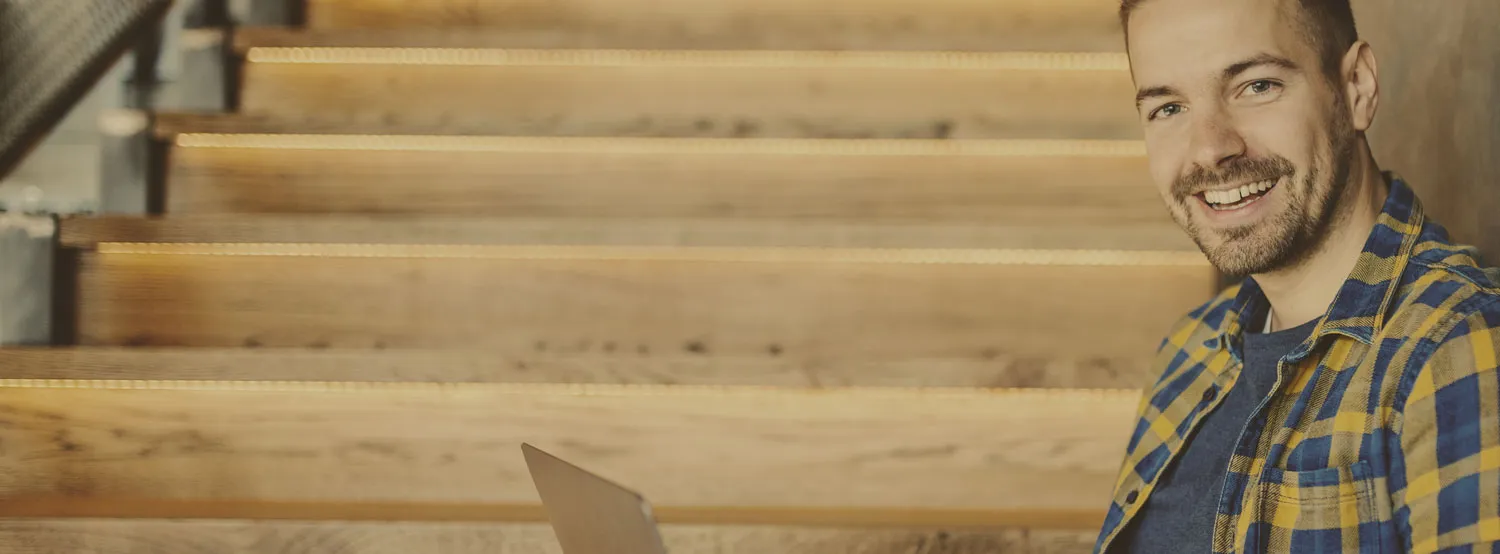Follow-up Email After an Interview: Tips and Examples
A follow-up email after an interview can be key to landing a job. Here’s what you need to know about sending a follow-up email.
Our customers have been hired by*:*Foot Note

What is a follow-up email after an interview?
An interview follow-up email is exactly what it sounds like: a follow-up correspondence sent after a job interview to indicate your appreciation to your interviewer and reiterate your suitability for the job title you have applied for. This kind of correspondence can be sent after any kind of interview — whether it was your first or second, whether the job interview took place in person or as a phone interview. Writing an effective follow-up email is now a standard part of the hiring and interview process. In fact, according to CNBC, sending a follow-up email is considered good career advice because it can increase a job seeker’s chances of success by as much as 68%.
In addition to after a job interview, a follow-up email can be written for many situations, such as requesting career-related information or following up after meeting someone through networking. The same rules and tips for these types of situations apply to post-interview emails. On this page, you will learn how to write a follow-up email after an interview, and find tips and examples to make a good impression.
Build my cover letterHow and when to do a follow-up email after an interview
If you want a job then you need to know how to follow up on the interview and show that you have a strong interest in the position. In many cases, a company does not make up its mind until it sees which candidate did the best follow-up on their interview and showed the strongest interest in the job.
Sometimes it can be difficult to keep track of a recruiter so if it’s an in-person interview, be sure grab a business card or make a note of the interviewer’s contact information and that of the department you are interviewing with. If interviewing remotely or someone you interview with in person does not have a business card, then get their name, title and preferred contact method, such as an email address.
Best practice for sending a follow-up email is to send the email within a day or after the interview, and then wait at least one week before another follow-up email or call. Instead of coming right out and asking if you got the job, inquire as to where they are in the decision process and when a final decision is anticipated.
Finally, ensure that you’re polite, professional and present yourself in the best light possible. The tips below will equip you with the knowledge of how to follow up on a job interview to ensure that you’re presenting yourself professionally and giving yourself the best chance at landing the job.
Follow-up email after interview examples
A follow-up email template or example is a great way to get a jump start on writing a perfect email. While you’ll want to send your email within the first 1-2 days, you can also use these examples to write a follow-up email after no response. Here are a few email examples that you can follow:
Follow-up email after short initial interview
Dear [Name],
Thank you for speaking with me yesterday. It was a pleasure discussing the social media specialist job role and learning more about your company.
I was particularly excited to hear that your company is expanding their social media outreach. In my experience, I have successfully started social media channels from scratch for three separate companies. I welcome the task of creating your company’s LinkedIn, TikTok and Instagram pages, and continue to plan and monitor those along with your other social media pages.
I’m confident that my social media background will help me to swiftly perform at the job. Let me know if I can provide you with any further information. I’d be thrilled to join your team and I’m looking forward to hearing from you.
Sincerely,
[Your Name]
[Your Phone Number]
[Your Email Address]
Follow-up email after a long interview
Dear [Name],
Thank you for the in-depth discussion we had yesterday about the junior account executive role. I have three years of experience successfully juggling two or more clients at one time to keep the creative process running smoothly.
During the interview, you mentioned that I would be working on a new marketing campaign for the local college. I have some ideas to make that marketing campaign gain the attention of prospective students and keep the clients satisfied through the process.
My communication, time management and creativity skills help me assimilate quickly to the role of junior account executive. If you have any further questions or need additional information, contact me any time. I would be thrilled to join your team and look forward to hearing from you soon.
Best regards,
[Your Name]
[Your Phone Number]
[Your Email Address]
Follow-up email after no response
Dear [Name],
I’m reaching out today to follow up on my November 15th interview for the office manager position. It’s been two weeks and I haven’t yet heard back from you, so I’m looking to see if I can provide you with any further information to help you with the review process. I’m still excited about this job role and available to get started.
Sincerely,
[Your Name]
Follow-up email to stay in touch
Dear [Name],
I’m reaching out to say thank you again for your time and consideration. I greatly appreciated our in-depth conversation about your company. Sharing your path to becoming the HR manager was such good motivation for my new career in human resources. It would be rewarding to learn more about how you developed your skills and receive any further direction that you could provide to me.
Are you available for a phone call next week or sometime in the near future? Thank you in advance for your time and talent.
Best regards,
[Your Name]
[Your Phone Number]
[Your Email Address]
Follow-up script to stay in touch via phone
(Call Made More Than 2 Weeks After Interview)
Hi, [Interviewer’s Name]! This is [Your name] calling. I interviewed on [date of interview] for the [the position you’re applying for] position. I wanted to follow up to see if there are any additional details I could provide to you to help with the hiring process. You can reach me at 123-456-7890. I hope to hear from you soon.
Build my cover letterHow to write a follow-up email after interview
Writing a good follow-up email is a matter of personalization, but also of good structure. Just as with any business letter, it’s important to make a good impression when you send a follow-up email. This is the basic structure on how to send a follow-up email after an interview:
1. Subject line and salutation
Keep your email subject line concise but detailed. If you’re wondering what should the subject line be for a follow-up email after an interview, starting with “Thank you for your time” and including the name of the position you’re applying for and then closing with a CTA (call to action) like “next steps in the process?” is a good way to go.
For example:
Social media specialist position at ABC Company: Thanks for meeting with me, what are the next steps?
As for your salutation, you should use the hiring manager’s name in your salutation. If you had a panel interview, you should address the interviewers as a group but it would be better to address each individually. If you have had more than one interview, you should send each a follow-up email of their own.
For example:
Dear Mr. Smith,
2. Reference the position you’re applying for and express appreciation
Start by showing appreciation for the time and consideration the interviewer gave you and mention the company name and job title you applied for. This may help you stick in their minds as they go through the decision-making process.
For example:
Thank you for the in-depth discussion we had yesterday about the junior account executive role.
3. Refer to specific elements of the interview
Make a point of referring to specific elements of the interview and ask additional questions during this check-in if you have any, especially if it was your first interview.
For example:
Thanks for sharing your path to becoming HR manager. It was such good motivation for my new career in human resources.
4. Mention how your skills can help the company
Your follow-up email is an opportunity to reiterate your skills and strengths to ensure they are firmly in the interviewer’s mind as they proceed with the hiring process. However, don’t go into too much detail. Just provide a quick, concise mention of a relevant skill or two.
For example:
I’m confident my communication, time management and creativity skills will help me assimilate quickly to the role of junior account executive.
5. Offer additional information or questions if necessary
As the sign-off of your email, offer to provide further information and mention anything you may have failed to mention at your job interview or in your job application, resume or cover letter. The closing gives you a last chance to make any important points and give yourself the best chance at landing the job and receiving a job offer.
For example:
If you have any further questions or need additional information, contact me any time. I would be thrilled to join your team and I’m looking forward to hearing from you.
Five tips for a great follow-up email
If you intend to make a good impression and secure a new job, it is important that your follow-up correspondence stands out from the crowd. This means ensuring you have an eye-catching subject line, greeting your interviewer by name and signing off with your own full name, but there are other things you can do to impress a potential employer.
1. Be concise
Get to the point of your email quickly. Thank the interviewer for the time spent during the interview but be concise to show respect for your interviewer’s time post interview.
2. Remind the interviewer who you are
Mention a quick recap of your discussion and enthusiasm for a specific topic or positive moment, from the interview so the interviewer is immediately reminded of which candidate you are.
3. Be clear in your messaging
Whether you’re seeking more information, answering a follow-up question or simply thanking the recipient for seeing you, be polite and direct. Focus on your enthusiasm for the opportunity and reiterate the things you think make you a perfect fit for the job, that may help influence the hiring decision and land you a second interview.
4. Proofread your response before you send it
Whatever you do, make sure you proofread and spell-check your follow-up note. Bad spelling and grammar will make a bad impression in a job interview follow-up.
5. If you haven’t received a response, you can send another follow-up but be sure not to be pushy
Don’t worry too much if you get no response to your follow-up email. Hiring managers have a lot to consider in the hiring process and final decision. Oftentimes, employers are often too busy to respond to a thank-you letter, no matter how well written it is.
More letter writing tips and resources
ResumeHelp also has many other resources to help you with your job search including tips to writing a great cover letter. A great cover letter can make a great first impression and quickly summarize why you are qualified for the job that you are applying for.
- Cover Letter Basics
- How to Write a Cover Letter
- Cover Letter Examples
- Cover Letter Formats
- What Is a Cover Letter
- Cover Letter for an Internship
- Letter of Interest
- How Long Should a Cover Letter Be?
FAQ: Follow-up emails after an interview
Have questions? We’re here to help.
How long should you wait after an interview to follow up?
After an interview, it’s common for the interviewer to let you know about the next steps in the hiring process and when you’ll get a response, or what you’ll have to submit next. But if they don’t make this clear or there’s not enough time to ask during the interview, it’s perfectly okay to follow up within a week. If you don’t hear back after an additional week, you can reach out again. However, if you don’t hear anything after a second week, it’s better to just wait for a reply as some companies have a long hiring process.
When should you send a follow-up email after an interview?
If you would like to send a thank you email within a few business days after the interview, that’s acceptable. If you choose to follow up, do so one week afterwards. If you don’t get any response after that, then follow up one more time but don’t go overboard. It’s a good idea to limit your correspondence (by email and phone) to three follow-ups, especially if you’re not getting a response.
How many times should you follow-up after an interview?
A good rule of thumb is to wait four to five business days after your interview and then follow up with a message that reaffirms your interest in the position and also sells your value. You want to have a short and sweet follow-up email after the interview and limit yourself to three follow-ups if you’re not getting a response because even though you don’t want to lose touch with the recruiter, don’t harass them either. We know that waiting for an answer can be stressful, but it won’t reflect well on you if you keep sending emails and calling the recruiter.
What should I say in a follow-up email after an interview?
Write your follow-up email within a day or two after your interview. This ensures that the hiring manager or potential employer will still have remembered your interview and know exactly which candidate is following up. Follow-up emails are an effective part of good networking skills and will help you make a good impression.
Couldn't find the answer you're looking for?






